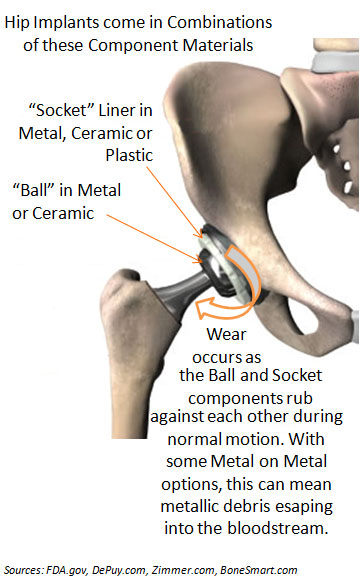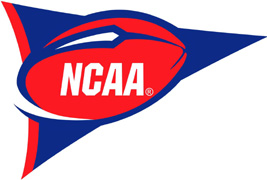 Top Class Actions
Top Class Actions
Actually, this week it’s Top Consumer Fraud Class Actions—because false advertising class action lawsuits seem to be the theme right now…
What’s Brewing at Tetley Tea? Let’s take Tetley Tea as an example—as of this week, the Tetley Tea is facing a federal consumer fraud class action lawsuit over allegations it falsely advertises the health benefits of its tea products, specifically that they are an “excellent” or “natural” source of antioxidants.
The Tetley Tea lawsuit states, “Tetley utilizes improper antioxidant, nutrient content, and health claims that have been expressly condemned by the FDA in numerous enforcement actions and warning letters” to other companies that made similar antioxidant claims, such as Unilever’s Lipton Tea.
The lawsuit is brought on behalf of all consumers in California who purchased Tetley Tea’s Classic Blend Black Tea, British Blend Black Tea, Pure Green Tea, Iced Tea Blend Tea, and/or Iced Tea Mix Tea within the last four years.
The lawsuit is seeking damages, restitution and other bits and pieces, for alleged claims of unlawful, unfair and fraudulent business acts and practices; misleading and deceptive advertising; untrue advertising; and violation of the Magnuson-Moss Act and Beverly-Song Act. That’s some laundry list.
Top Settlements
Couple of big preliminary settlements on—you guessed it—consumer fraud/false advertising class action lawsuits to tell you about this week…
Skechers Sketchy Health Claims. This one, all over the media, implies that Skechers may be guilty of sketchy health claims. At least the FTC thinks so. But not the shoe manufacturer, of course. Nevertheless, Skechers USA has agreed to pay $45M to resolve allegations brought by the US and state governments that it deceived customers about the health benefits of its Shape-ups athletic shoes.
The allegations center on claims that the shoe manufacturer’s athletic toning shoes help people lose weight and strengthen their buttocks and legs. Skechers aren’t the first athletic shoe maker to face penalties for their advertising claims—Reebok also got hit and settled for $25 million, but hey, according to news reports, these shoes are big business. Skechers reportedly made $1.4 billion in 2009.
According to a statement by the US Federal Trade Commission, Skechers, based in Manhattan Beach, California, also made false claims in advertising for its Resistance Runner, Tone-ups and Toners shoes.
According to a report by Bloomberg, the ads for Skechers that were challenged by the FTC include one for Shape-ups that told consumers they could “get in shape without setting foot in a gym,” according to the statement. The FTC alleges the company made unsupported claims that the shoes would provide more weight loss and muscle toning than regular fitness shoes.
You may be a class member if you purchased eligible Skechers toning shoes since August 1, 2008, with limited exclusions. The Court has not yet ruled on whether the settlement should be preliminarily approved. The Court may not grant preliminary approval or may require certain changes to the proposed settlement.
If the Court grants preliminary approval of the proposed settlement, you will have rights which you may wish to exercise, including rights to opt-out of the settlement or object.
Under the terms of the preliminary settlement, Skechers has agreed to provide refunds to consumers who bought the following Eligible Shoes as new since August 1, 2008:
Skechers Shape-ups rocker bottom shoes
Skechers Resistance Runner rocker bottom shoes
Skechers Shape-ups Toners/Trainers
Skechers Tone-ups with podded outsoles
Skechers Tone-ups non-podded sandals
Skechers boots
Skechers clogs
Skechers trainers (Tone-ups, non-podded sole)
The total refund you can receive from the Skechers shape-ups settlement will depend on how many Eligible Shoes you purchased from August 1, 2008, onwards, as well as the total number of valid claim forms submitted by other Class Members.
Possible reimbursements could be:
$40 – $80 for Shape-ups;
$27 – $50 for podded sole shoes;
$20 – $40 for Tone-ups (non-podded sole); and
$42 – $80 for Resistance Runners
To find out more about the Skechers settlement, whether or not you could qualify as a class member, and to download forms, visit http://www.skecherssettlement.com.
Verizon Calling —Verizon Land Lines that is. A preliminary settlement has been reached in a consumer fraud class action pending against Verizon. This time, it’s not health claims that are the issue—but third-party charges.
If you were billed for third-party charges on your Verizon landline telephone bill, you may be entitled to a payment from this class action settlement, if the settlement is approved.
The Settlement will provide for payments to all class members who properly submit Claim Forms by November 15, 2012. The payments will be either $40 in the case of approved Flat Payment Claims or the full amount (i.e., 100%) of unauthorized Third-Party Charges you paid in the case of approved Full Payment Claims. Some class members may have a claim for less than $40. Class counsel contends that some class members may have a claim for hundreds of dollars, or more.
You must submit a claim form in order to qualify for payment. This is the only way to get a payment. You may submit a Flat Payment Claim for $40 or a Full Payment Claim for 100% of all unauthorized charges you paid. To file a claim, you must complete a Claim Form either online or download a Claim Form, print it out and mail it to the Settlement Administrator by November 15, 2012. You can find the claims forms by visiting www.verizonthirdpartybillingsettlement.com.
The Court in charge of this case has given its preliminary approval to the Settlement but still has to decide whether to give final approval to the Settlement. Payments will be made if the Court gives final approval to the Settlement and after appeals, if any, are resolved.
OKee dokee. Enough business as usual—it’s the weekend! See you at the bar—where the health benefits are obvious and require no advertising…


